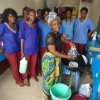- Get famous people to endorse your cause
- Sarcasm (Humor)
- Social Networks (Facebook, Youtube, Twitter, WOW, Xbox, MySpace, etc.)
- Colours
- How much it is.
- Need vs Want
- Threaten people
- Connect to emotions, make them feel sad, make them feel bad about themselves, make them feel like they have to do something.
- Peer Pressure
- Use humour, music
- If it looks cool
- If you see it on a T-shirt
- Sign flipper guy???
- Excitement
- eg. Shamwow guy
- Having expression, making what you say interesting
- People who are doing this activity are really happy
- Share it with a lot of people (a reputable source airs what you make, people will take it seriously)
- Have a name that is catchy so people can remember it
- Set the mood with music, colours, etc.
- Have images to show people
- Walk around and talk to people
- Give people samples
- Over-exaggerate things (Hyperbole)
- Jingles, music, repeat yourself
Wednesday, March 21, 2012
Global Impact Project - How to Convince People
Ways that we can convince people
Tuesday, March 20, 2012
$25 Kiva Free Trial
Check out this link from Kiva.org! If you sign up by clicking the link, OR by going to http://www.kiva.org/invitedby/mrhyland, you can get a $25 credit to make your first loan on Kiva for FREE! You must be 18 in order to sign up, SO, if you know anyone who is over 18 years old and wants to help make a difference in the lives of people around the world, have them sign up!
| ||||||||||||||||||||||||
Global Impact Project - The Issues
We have been brainstorming a list of environmental problems in our school, community, country and world. Below is the collection of environmental issues that we brainstormed as a class, and could be used for your Global Impact Project research.
- Wasting energy
- Littering
- Oil Spills
- Poaching (killing animals illegally)
- Air Pollution
- Water pollution (dumping in lakes)
- Toxic Waste -
- Water contamination, soil contamination.
- Noise pollution
- Smog (air pollution)
- Acid Rain (air pollution)
- Over-hunting
- Light pollution
- Fossil Fuels
- Smoking
- Wasting water, leaving the tap running
- Wasting Food
- Recycling
- Over farming
- Burning plastic (air pollution)
- Blue boxes aren't being used. Mess from Blue box?
- Poaching - illegal hunting
- Taking shortcuts to save money (eg. Sometimes companies sacrifice safety to cut costs. Makes it easier to break, like oil lines)
- Gas usage: More and more people are using gas. Car pooling?
- Convenience foods --> too much packaging = lots of waste
- Busses would help to conserve gas, pollution, etc.
- Carpooling -->pick each other up to go places
- McDonald's & Tim Hortons --> coffee cups on the ground Maybe make their stuff biodegradable
- Wasting paper
- Library vs buying books
- Forest Fires
- Deforestation (cutting down trees)
- Air pollution (eg. smoking, cars, industry, fireworks)
- Recycled backpacks? Use technology instead of paper
- Pens that break down in compost
- Composting
- Excessive Energy consumption: Video games using a HUGE amount of power to run, leaving lights on, leaving computers running, cruising Facebook forever
- Smoking -->pollution
- War, destruction, nuclear bombs
- Drive-thru's ppl leave cars running for a long time.
- Cutting down forests for city expansion
- Water pollution -->gross lakes, plastic in the ocean
- Over Fishing
This list is not inclusive of ALL problems facing our community. If you can think of others issues that you think about please leave them in the comments below!
Once you choose an issue that you want to try to help, start researching to find out more about it. Make sure to use the Research Jot Note sheet to keep track of your research. (You can find a digital version of that handout in the Resources section.)
Monday, March 19, 2012
Social: Resources Essential Vocabulary
Good day all! As you are well aware I'm sure, this week we are finishing up on the basic knowledge of our social Resources & Wealth unit before we begin our project. We are going to be participating in team challenges this week, as well as write a quiz on Thursday. On the quiz, students will need to be able to define the following terms. I've provided the definitions in case students have misplaced their versions.
Today we will update our notes with the work (and homework) you did yesterday to ensure that we are all on the same page. I will update this post when we have the definitions completed.
1. Barter - The exchange of goods or services for other goods or services without the exchange of money. Also could include the act of debating the price of those goods.
2. Trade - The exchange or buying and selling of goods and
services in a market.
3. Economy - The wealth and resources of a region or country, including the production and consumption of goods and services.
4. Wealth - Accumulated goods, possessions, or riches.
5. Natural Resources - The raw materials or components of a finished product that are provided by the earth.
6. Renewable Resources - A resource that replaces itself if carefully
managed.
7. Non-Renewable Resources - A resource, such as oil or gas, that cannot be replaced once it is used up.
8. Supply & Demand - We call our needs the DEMAND, and natural resources are the SUPPLY. Higher demand and lower supply equals higher prices.
9. Steward - A person who cares for the land or for other
people.
10. Environmental Stewardship - Careful management of resources to ensure that they are sustainable.
11. Sustainability - An approach to development, economics, or
society that considers the environment and tries to avoid wasting or using up
natural resources, so that future generations will be able to meet their needs.
Tuesday, March 13, 2012
Boy in the Striped Pajamas
In class we have just finished watching The Boy in the Striped Pajamas. This film causes us to think about a few very important issues:
Please consider these questions and answer them in complete sentences.
Innocence
-
The essence of true friendship
-
The courage to engage in humane actions
-
The uses and abuses of obedience and conformity
-
The development and consequences of prejudice and discrimination
Innocence
- What do “innocent” and mean when used to describe children?
- Does Bruno and Gretel’s tutor take advantage of the children’s innocence in what he teaches them? How? What were these ideas?
- Although Bruno and his family have moved to a desolate place, Bruno continues to display his strong sense of adventure and creativity. What are some examples of this in the movie? Can you give an example from your own life when your sense of adventure and imagination allowed you to escape from a sad or painful situation?
- Why was it so hard for him to believe that his father could be involved in hurtful acts?
Friendship
- Why do you think Bruno and Shmuel become friends and stay friends?
- The barbed wire fence is a physical separation between Bruno and Shmuel. What other types of separation does the fence represent in this story?
Obedience & Conformity
- How is obedience constructive and how can it be destructive? Give examples from the story of each.
- When are some examples in history when obedience or disobedience have been constructive or destructive?
Prejudice & Discrimination
- Have you ever been discriminated against? When have you witnessed discrimination against other people or discriminated against someone else?
- When Bruno first finds out that Shmuel is Jewish, he says: “You’re a Jew. You can’t be. I think I should go now.” Why does Bruno react that way at first?
Final Questions
- When you hear someone make a biased comment about a group of people, what do you usu- ally do? How hard is it to stand up to prejudice and discrimination? Why?
- What do you think causes people to treat others in such horrific ways as was done during the Holocaust? Are there people being treated like this anywhere in the world today? What is or can be done to stop it?
These questions are based on a discussion guide produced by the FILM Project with Harriet S. Mosatche, Ph.D.
Monday, March 12, 2012
PA - Monologue Performance Project
Today we begin a new dramatic journey! Today we will begin our monologue projects. Monologues are unique experiences on stage where the audience gets to see you alone on stage.
The project outline and marking rubric are below:
PROJECT OUTLINE
PROJECT RUBRIC
As you're working through verbing your script, check out this list of verb ideas, courtesy of sunnyhillsdrama.com
Also check out a few examples of monologues below. All of them are good, some are awesome. Use the videos to help give you some ideas for what you could do.
The project outline and marking rubric are below:
PROJECT OUTLINE
PROJECT RUBRIC
As you're working through verbing your script, check out this list of verb ideas, courtesy of sunnyhillsdrama.com
Also check out a few examples of monologues below. All of them are good, some are awesome. Use the videos to help give you some ideas for what you could do.
Subscribe to:
Comments (Atom)






